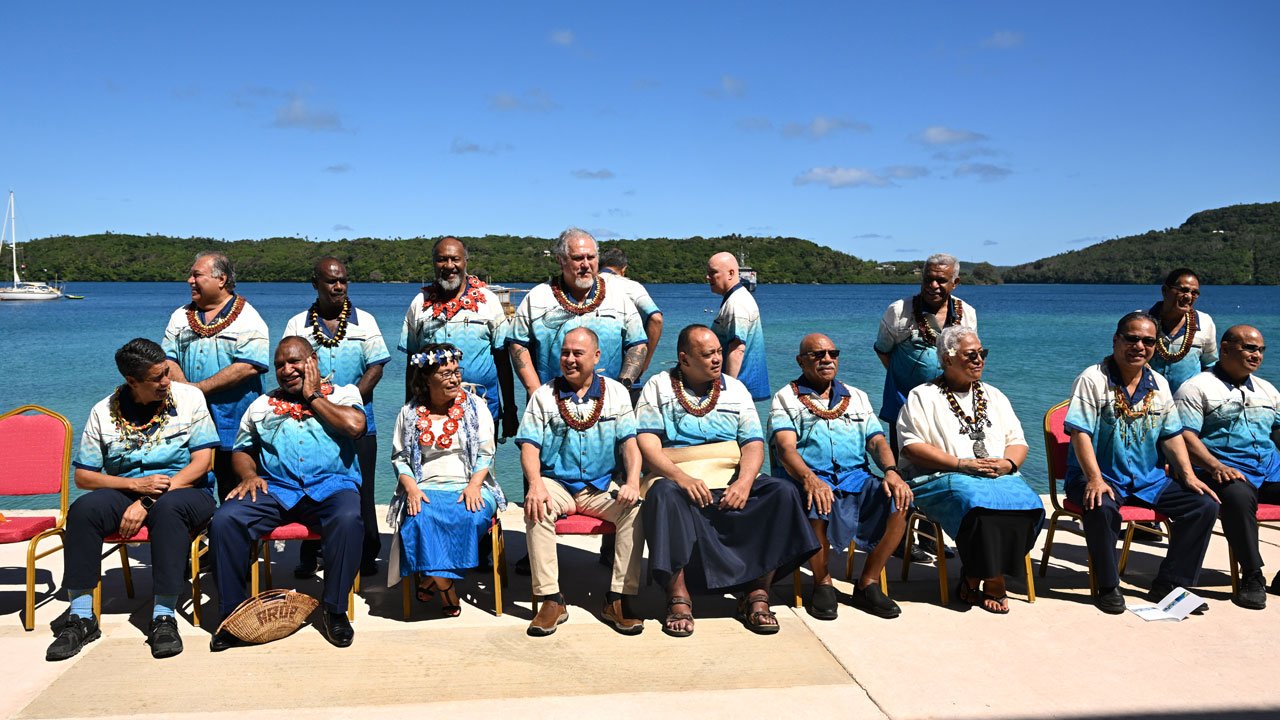
The annual meeting of the Pacific Islands Forum (PIF) began on August 26, 2024, in Nuku’alofa, the capital of Tonga. The event is being attended by more than 1,500 delegates from around 40 countries.
At this year’s week-long meeting, climate change and the China-US battle for influence over the strategic region are dominating the discussions. Here is a look at the PIF and the issues being discussed at the meeting.
Another issue which is being widely discussed at the summit is the ongoing tussle between China and the US for influence over the region.
In recent years, China has deepened its ties with PIF members — observers suggest that this is one of the reasons why PIF’s annual summit has gained wider recognition. The Asian country signed security and policing agreements with the Solomon Islands, in particular, setting off alarm bells in Australia and the US.
This year’s PIF meeting features the forum’s largest-ever delegation from China and a sizable deputation from the US, led by Deputy Secretary of State Kurt Campbell, according to a report by the Associated Press.
The US and India have increased their strategic presence in the Pacific Islands following China’s increased assertiveness in the region. Last year, Chinese Foreign Minister Wang Yi’s visit to the Pacific Islands was viewed with a lot of interest in New Delhi’s strategic circle which to a larger extent promoted India to increase its foothold in the region.
Meanwhile, China last year signed a security pact with the Solomon Islands, a first-of-its-kind arrangement that could pave the way for further Chinese security deals overseas.
On the other hand, the other countries in the region rejected Beijing’s security deal citing that it will infringe on the Pacific Islands’ sovereignty.
Also, India viewed the recent elections held in Fiji, Samoa and the Cook Islands with a lot of interest as the influence of China was felt specifically.
On the other hand, as India wishes to extend its influence in the Pacific Islands and South Pacific, it will develop its relations both in the Polynesian and Melanesian countries.
To start with, earlier the Cook Islands were accredited to the Indian High Commission based in Fiji. It’s understood that Fiji is the hub of the Melanesian country.
With the above background, India wishes to open diplomatic missions in several countries of the South Pacific, including Samoa and Tonga (which are currently served from Wellington and Suva respectively). The increased presence and India’s desire to enhance its influence in the Pacific Islands Forum could be motivational.
India as it wants to become a permanent member of the forum understands that it provides an important annual opportunity for Pacific Islands leaders to discuss the political, economic and developmental issues facing the region in a time of rapid change, globalisation and increasing instability.
On the other hand, China will also view more status to claim in the Pacific Islands Forum. Though Australia and New Zealand indeed understand the increased Chinese presence in the Pacific Islands, it’s understood that they will also join hands with the United States, India and France to make sure that Beijing doesn’t have increased influence in the region.
As India is expanding its maritime reach to the Pacific Islands, the region falls organically into China’s maritime strategic thinking as a part of its oft-stated “island chain” strategy. Beijing largely benefited from good terms with Washington during the Cold War, paving the way for its politico-military expansion in the Pacific Islands (which began quietly in the early 1980s).
Also, India at present has permanent diplomatic postings only in Fiji and Papua New Guinea, none with military attaches. India is expected to seek membership in the Melanesian Spearhead Group as a tactical move to counter China’s expansion in the South Pacific region, especially in the Melanesian countries where its influence is increasing.
India’s Eastern Fleet has its operations through the Straits of Malacca but not to the Pacific Islands which could be facilitated by other maritime powers in the region which include the United States, Australia and New Zealand. It has somewhat got stuck in the southwest Pacific and precisely in the Strait of Malacca.
China’s maritime strategy is based on the three island chain strategies. India’s expanding naval presence is in keeping with the view that there is a need for it to have sea lanes of communication for its population. It’s because India feels threatened by China’s expanding presence in this Indo-Pacific region the fact that the other powers in the region, the United States, has military commitments in other parts of the world, and the fact that Australia and some of the countries like Indonesia will not be in a position to challenge.
Earlier, China proposed a five-year action plan sent to 10 Pacific islands ahead of a meeting of foreign ministers on May 30 2022 which was rejected by the Pacific Islands as the proposed plan “threatens regional stability”.
India’s politico-military planners understand the increased role that Beijing will play in the affairs of the Pacific Islands.
Therefore, India’s strategic expansion of the Pacific Islands will be facilitated as India’s Andaman and Nicobar Tri command services become increasingly operational and it eventually turns out to have a third fleet based in Port Blair which has an increased role in the wider Indo-Pacific region.
Also, when the Pacific Islands Forum was happening, Chile’s Foreign Minister Alberto van Klaveren was on a three-day visit to India and held a meeting with External Affairs minister S Jaishankar and discussed bilateral cooperation in trade and investment, agriculture, critical minerals, defence and space among other issues.
Chile is an important economic powerhouse in Latin America and has important strategic interests in the Pacific Islands as even Chile is a member of the Polynesian Spearhead Group.
In conclusion, as India’s strategic interest is increasing in the Pacific Islands both the Island countries and outside powers look up to India for leadership.
Leave a Reply